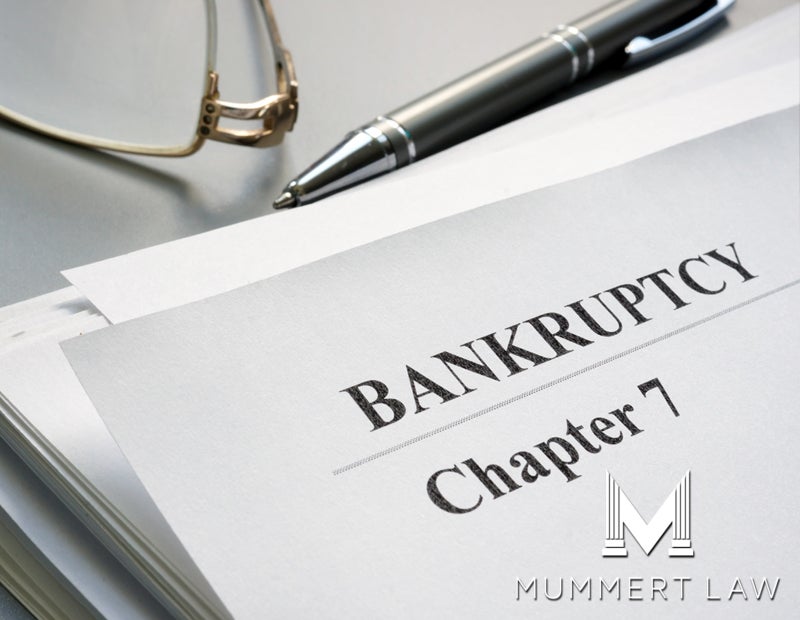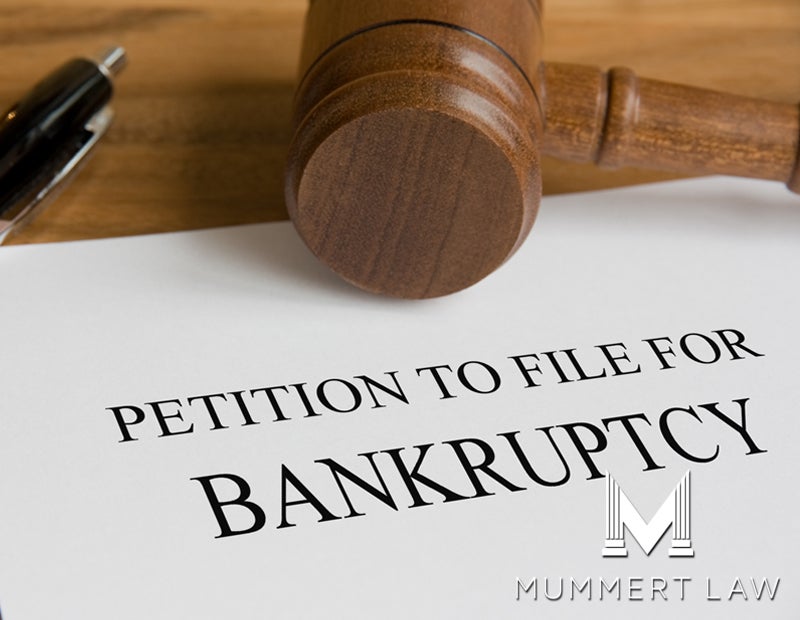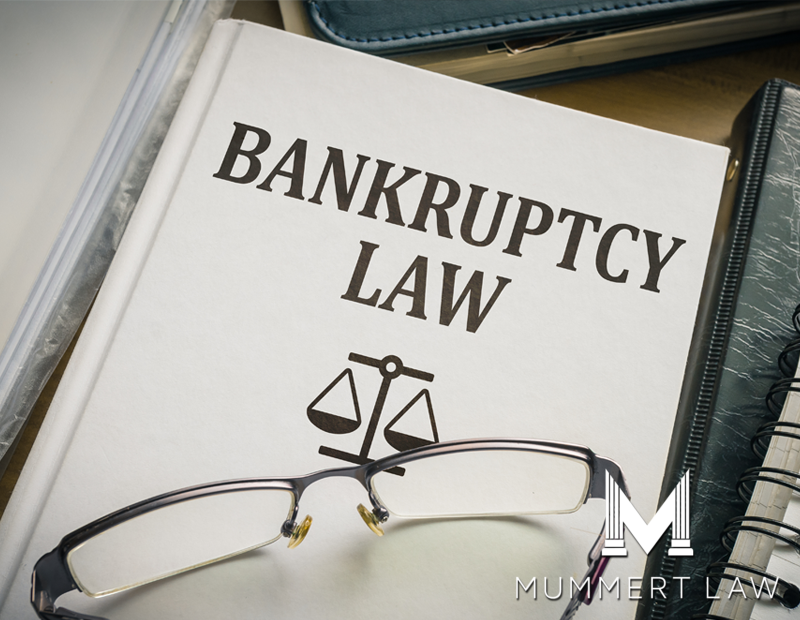-
Senior Prenups – Love in the Golden Years

What a joy it is to discover love again in our golden years. Having the companionship of a partner can help to keep a person feeling younger and vital. Often they meet with disappointment from their adult children, which causes tension in what should be happy times.
This is just one of the reasons that seniors agree on prenups before they marry. Let’s take a look at a few other reasons why a senior prenup might be a good idea.Asset Accumulation
By the time a person reaches retirement age, their financial picture will look significantly different from their twenties or thirties. There might not have been much to worry about in their younger days. As a person’s portfolio grows, so may the concerns about passing that wealth on to children and grandchildren.
You may own a home, your retirement account, and even a business in addition to other assets. These decisions are much easier to discuss before a marriage occurs, as long as you move gently and consider each other’s feelings.Balancing Your Legacy
Every circumstance is different, but the balance between providing for your spouse, if necessary, and leaving an inheritance for your heirs is important to most seniors entering a marriage. Balancing these priorities to provide for both should bring peace and harmony into the new blended family.
Negotiating the Day-to-Day Expenses
With the possibility of each partner bringing assets to the marriage, one of the issues that the couple might want to include in a senior prenup is how the couple will support the household and living expenses.
They may decide to support the household expenses equally or according to the assets that each has. If one partner has significantly fewer assets, it may not make sense for them to participate in the household expenses to any significant extent.What About Divorce?
Nobody enters a marriage thinking about divorce, but divorce can become a reality in any marriage. A prenup can clarify a variety of decisions that a couple must make when deciding to dissolve their marriage. This is especially helpful, as some couples have already been through a horrible experience with a previous divorce.
Although a prenup may address the division of assets, it can also recommend that couples use an alternative dispute resolution (ADR) to settle disputes. These methods include mediation, collaborative law, or arbitration. Using these methods can prevent the couple from ending up in court. They won’t have to pay expensive divorce lawyers and fight it out in court.
Do You Need Help With a Senior Prenup?At Mummert Law, we help couples with their prenups. We also serve as mediators, both court-appointed and private. This is beneficial since we have seen the outcomes that give us additional insight into factors that need to be considered in a prenup.
If you need help drawing up a prenup with your spouse, please contact us at Mummert Law. Although love is lovelier the second time around, both spouses should still enter the union clear-eyed and understanding their position. We will be happy to consult with one or both of you and help negotiate the best terms for your new marriage. -
Domestic Agreements for Millennials

Today’s millennials take a different view of marriage than those that came before them. They are waiting longer to get married. Some are deciding not to marry at all but to form a domestic partnership instead. In fact, some will prefer the word “partner” to “boyfriend” or “girlfriend.” Quite a few married couples also prefer the term “partner” to “husband” or “wife.”What’s in a Word?
You may ask yourself what the big deal is. Most millennials want to use terms free from stereotypes, and “partner” indicates a more even distribution of power. When you’re partners, you work together and divide things evenly. In past days, “partner” was used to mean someone you were in business with. Then, it became for people in a romantic relationship, usually younger people, refer to themselves as partners, whether married or not.
Making a Contract
What’s a partnership without a contract? Quite possibly because they have waited longer to get married, millennials have had plenty of time to think about what they want from a relationship and a partner. They feel like contracts increase clarity about their expectations, both from themselves and from their partner.
What Points are Outlined in a Domestic Relationship Contract?
No two relationship contracts are alike. They can cover everything… work responsibilities, domestic chores, custody of pets, even custody of frozen embryos. These contracts can cover everything that a millennial might list in a pre-nuptial agreement… Without the nuptials! They may indicate what happens if one of the partners is unfaithful. Who gets to stay in the apartment or house? What if one of the partner’s parents becomes ill and needs to move in? Who takes out the trash, and who does the laundry? How is income divided? How we divide the sofas, TVs , pots, pans, and utensils.
All these questions, and more, make up the topics that are likely to cause disagreement if the relationship is in trouble, and dissolving it seems the only course of action that makes sense.Are Relationship Contracts New?
These relationship contracts have been around for years since the sixties. They are more popular than ever, and many millennials view these adult problems as a fact of life. We must remember that most of them witnessed firsthand what devastation a divorce or breakup can cause. Not only did they see their parents (and then their parent’s boyfriends and girlfriends) fight over how to divide monthly expenses, but also who gets the Kitchen Aide mixer, when a relationship fails.
Are Relationship Contracts Necessary?
The simple answer is yes. When people get divorced, there is a set of laws how to divide property as well as how to handle financial obligations and support. But for unmarried couples, the trickiest situations for me to handle are unmarried couples. These agreements set a framework for not only partners to know what to do, but more importantly for a Judge to know what to do.
Millennials understand the importance of thinking things through and gaining clarity in their relationships. Failure to sign an agreement before beginning a living arrangement may be a deal-breaker for one or both parties. One thing’s for sure, the conversations that take place while constructing a relationship contract can get quite lively! But the benefits to be gained by talking things out and planning intentionally may outweigh the disagreements that take place and help to form a more perfect… “partnership!”At Mummert Law, we can help you define your relationship… on your terms! Not sure what to put into a relationship contract? Disagreeing over terms? These are situations where we can help mediate between the partners and help come to an agreeable solution.
If you’d like help to form a relationship contract with your partner, Mummert Law can assist you. Contact our office and make an appointment for a consultation. -
Five Reasons to Settle Your Divorce Through Mediation

Getting divorced is never a pleasant situation. We’ve all heard horror stories about the fights and unexpected outcomes. As a lawyer, I’ve seen my share of ugly divorces. The battles don’t surprise me anymore. Couples can fight over the kids, or the Kitchen Aid mixer, and all with the same passion. I’m a proponent of using the dignified approach of mediation to dissolve a marriage. Here are some great reasons to use a mediator to guide you through the decisions involved in an amicable divorce.
Save Money by Using Mediation
In a traditional divorce, driven by lawyers who have been hired by each party, the fees can be sky-high. In most cases, each party pays their own lawyer, and the price tag may be shocking. As the two lawyers each argue and negotiate back and forth on behalf of their individual clients, the costs continue to climb. Did you know the cost of a traditional divorce can reach five, or even six figures before it’s complete? Everybody saves money by working through mediation.
Mediation Saves Valuable Time
Over and above time requirements set by the state, traditional divorce cases are lengthy. In Maryland, it can take eighteen to twenty-four months, or longer. Separating through mediation is considerably faster, and it’s possible for eligible participants to be divorced in around sixty days. Taking more time doesn’t usually shed light on anything new. It just drags the proceedings out and prolongs the healing process when you’re ready to get on with your life.
Mutual Agreement Through Divorce Mediation
During mediation, both parties can review each other’s documents, and negotiate an informed settlement with the help of the mediator. Documentation for financial information can be requested by the individuals themselves, instead of having to pay a lawyer to request them. The beauty of this arrangement is people are more likely to have confidence in the documents submitted, since they are done so voluntarily. Since both parties have a voice in the solution, enforcement issues are less likely to come up later.
Be Kinder to Your Children… Choose Mediation
Divorce is especially hard on children. As stressful as it may be for adults, kids often feel emotions they can’t put into words. Mediation is a great way to work together to bring about the best outcome, especially for your children. Co-parenting is an essential part of being a divorced parent. Going through the mediation process creates the best chance for the two parents to work together in the future.
Control the Outcome of Your Divorce Through Mediation
When a divorce winds up in court, there’s no way to know what the outcome is going to be. It makes life difficult when it comes to planning for the future. A lawyer driven divorce can turn lives upside down without warning. A mediated divorce brings an agreed-upon outcome, so the transition to becoming a divorced family is much more peaceful. It’s also interesting to note the court is likely to order mediation anyway, even if you’ve already paid hefty legal fees.
Who Can Be a Divorce Mediator?
Technically, anyone can be a mediator. To be a court appointed family mediator, he/she must be qualified through eighty hours of initial training, and an additional four hours a year of continuing educational training. Court appointed mediators are usually lawyers or mental health professionals. But lawyers who specialize in mediation bring added value to the table. Because they have experience in family law and have had a chance to interact with and observe a judge’s decisions in divorce cases, they have a better understanding of the process and risk of going to court.
Interested in Learning More About Mediation?
I am qualified through training, education, and conducting countless mediations in family law cases. I serve as a court-appointed mediator in family law. My education and training in high-conflict cases and working as a parent coordinator allows me to look at things from a better perspective. It’s rewarding when I help people refocus negative energy. Instead, I help them gain an appreciation for doing what is best for the family. I handle high conflict cases on a regular basis. I take great pride in working with people to reach an agreement both parties can agree to comply with. I enjoy helping families be as stress-free as possible when going through divorce.
-
Understanding Your Bankruptcy | The Reaffirmation Option

The process of bankruptcy includes altering or breaking the agreement you made with your creditors in the first place. Sometimes it’s necessary to do this to keep your financial footing. How does it affect your secured debt? Secured debt is the money you borrowed to buy property… ranging from your car to your furniture, even your jewelry. Let’s take a look at the reaffirmation option and how it affects your ability to keep your purchases within your bankruptcy.
Reaffirmation – Keep Your Property
In a Chapter 7 bankruptcy filing, to reaffirm your debt basically means that you agree that this is a valid debt and that you owe the money to your creditor, and you will continue to pay on this debt even after your bankruptcy case ends. In essence, it means that particular debt is not part of the bankruptcy and will not be discharged.
Some Conditions of Reaffirmation
If you are in delinquent status on the debt at the time of the Chapter 7 filing, you will not be able to reaffirm the obligation. The trustee may seize the property and sell it and use the money to pay off the unsecured debt owed to other creditors. Your lender could also file a Motion for
Relief From Stay to reposse or foreclose upon the property.
Even after you reach a reaffirmation agreement with the lender, it must be filed in court as part of your bankruptcy to be considered valid. The judge must also decide if you will be able to make the payments that were negotiated and stated in the agreement.
It is possible that the judge will reject your reaffirmation agreement if it seems like it will cause you or your family financial hardship, or that you won’t have the money to make the payments as stated. Before a Judge rejects the agreement, a hearing will be held where you will explain to the Judge why you need to reaffirm this debt and how you plan on paying the debt each month.Important Reaffirmation Strategy Considerations
You may be in a situation where you will need to keep specific property that has been purchased with secured debt. The loan agreement may stipulate that the creditor can seize your property if you do not make the payments as agreed. STAY CURRENT on this debt. It is unusual for a creditor to agree to a reaffirmation commitment if you are behind on payments. This may prevent you from having the option of reaffirmation.
Remember that reaffirmation leaves you with remaining debt after your bankruptcy, so proceed with caution. When making your decision, be sure to get advice from your attorney on the following:
- Is this the only way you can keep the property?
- Will you realistically be able to pay the balance?
- Can you get the creditor to readjust the balance due to give you breathing room?
Reaffirmation is Only One Option
When you’re filing Chapter 7 bankruptcy, you have options. It’s essential to get good legal advice before filing, to ensure that everything is processed correctly and in your best interest. At Mummert Law, we help people every day to reduce and reorganize their debt through bankruptcy proceedings and negotiations with creditors outside of bankruptcy. Contact us today for your consultation appointment. Let’s sit down and discuss your situation. We can help you too!
-
Bankruptcy Chapter 7 Versus Chapter 13

These days, finances are complicated for many people. We see record numbers of new bankruptcy cases across the state. If you’re not familiar with the different types of bankruptcy filings, it can be confusing. Today, we’re going to talk about the differences between Chapter 7 bankruptcy and Chapter 13 bankruptcy. You’ve probably heard of both types but may not understand the difference between the two. We’ll clarify that now.
What are the Similarities Between Chapter 7 and Chapter 13 Bankruptcy?
Both types of bankruptcy can bring relief from a crushing debt load that you are unable to handle, but they do it in very different ways. Both strategies can be done on your own but are better handled by competent attorneys that specialize in bankruptcy. Bankruptcy is a complicated procedure, and not for amateurs.
What are the Main Differences Between Chapter 7 and Chapter 13 Bankruptcy?
The goal of Chapter 7 bankruptcy is to eliminate most, if not all, of your debt. The debt is “discharged” through the process, and you no longer owe it to the creditor. However, the Trustee may be able to sell assets for the benefit of the creditors.
Chapter 13 bankruptcy is different, and it serves as a way to reorganize your debt, make reasonable arrangements to pay off what you can over time, and make it more manageable for you. If you have a debt that could be sold in Chapter 13, the Chapter 13 Plan most likely will let you keep that asset.Do You Have to Be a Business to File Chapter 7 or Chapter 13?
No, business entities other than sole proprietorships cannot file using the Chapter 13 option… only individuals or sole proprietors have this option. Chapter 7 can be used by both businesses and individuals. For individuals, you will eliminate the debt when you’re in over your head. For businesses, you will not receive a discharge, but you will put the world on notice that the business is shut down.
Are There Financial Restrictions for Chapter 13 and Chapter 7?
Yes, both types of bankruptcy filings have some restrictions. For you to file Chapter 7 bankruptcy, you must pass a means test, and your disposable income must be low enough. We must also protect the assets that you want to keep.
Eligibility for Chapter 13 is determined by the amount of secured and unsecured debt you are currently carrying.How Long Do Both Options Take To Receive a Discharge?
When you file for Chapter 7, it will most likely take approximately four to six months to receive your discharge of debt. Remember that Chapter 13 is more about restructuring than eliminating, so you will get your discharge when you’re finished making your arranged plan payments. The process usually varies between three to five years.
Weighing the Pros and Cons of Chapter 7 Bankruptcy
There are pros and cons to both Chapter 7 and Chapter 13. The main benefit of filing Chapter 7 is that it’s over relatively quickly, and most of your debts are discharged, meaning you can move on at that point. When you file Chapter 7, however, some of your property can be sold to pay down debts, and there’s no way to prevent repossession or foreclosure.
Looking at the Pros and Cons of Chapter 13 Bankruptcy
When you file to restructure your debt under Chapter 13 Guidelines, you can keep your property, and you’ll have up to five years to repay your past due car payments or mortgage payments. On the downside, it will take three to five years to complete your Chapter 13 bankruptcy, and you’ll end up paying back a portion of unsecured debts as well.
How Do I Figure Out Which Method is Better For Me?
If you are not sure which filing option would be better for you, Mummert Law can help! We are available for a consultation, at which time we’ll sit down together, evaluate your position, and determine the best way to proceed. Don’t go it alone when it comes to bankruptcy. Make your appointment with Mummert Law today!
-
Consensual Adoption

Consensual adoption usually represents a happy day and the best of circumstances. When a stepparent who has been raising a child gets to adopt that child and become their parent, officially and legally, the whole family has cause for celebration.
Steps to Consensual Adoption
First, the prospective parent files a Petition for Adoption. What happens next depends on consent. Consent means the biological parent has agreed to give up their parental rights and allow the proposed adoption to go forward. If there is no consent attached to the petition, the court issues a Show Cause Order. It is sent to the parent who is being asked to grant consent.
After being served, the parent who has been issued the Show Cause Order has thirty days to respond to that order. This is one of those situations in law where time is of the essence, and there is no wiggle room for procrastinators. In the absence of a response within 30 days, it is considered to mean consent is given. If you are planning to withhold consent, it is vital to reply and to make sure your reply reaches the court within the thirty-day window.Open vs. Closed Adoption
In a closed adoption, the biological parent no longer has parental rights. They may have been given up voluntarily or taken from them as a result of a “fitness” test. They do not have visitation rights nor the right to have any say in the rearing of the child.
In an open adoption, the biological parent may be granted limited access to the child going forward, as agreed by the two parties. Both parties will agree on when and under what conditions the parent has access to information about the child as he or she grows up, may visit the child, or have the ability to contact them.The Role of Mediation in Consensual Adoption
You may be wondering why you need an attorney or mediator if everything is agreed upon. The truth is, when it comes to matters of family law, such as adoption, it’s essential to have a legal and binding agreement. It’s also important to have a professional who is aware of all the issues involved in an adoption, whether it’s an open or closed adoption.
Put simply, people tend to change their minds over time. What they agree to today, they may challenge in the future. Having legal rights in this situation will prevent confusion in the future.
Things are different today than they were in the past. Through genetic family tracing, people are finding out as adults that the people he/she through were their parents are not actually their parents. Furthermore, parents who gave up all rights to children when they are young are having a person show up in their inbox or on their doorstep, asking if they are their biological parents.A mediator has the experience to know all the issues which can help create a durable plan for what happens in the future. A mediator can help both the adoptive parents to begin addressing these issues now, including suggestions of when the child may need counseling to address the age-old question of “Who am I?”
Why I’m Your Best Choice for a Mediator in Your Adoption Case
I’m a trained mediator, an attorney for children, and an attorney for parents. I’ve seen too many adversarial scenarios and the effect it has on the kids. Adoption through mediation is peaceful and best for everyone, from the individual to the whole family. Rely on my experience and care to guide you through the process with a minimum of drama and the best possible outcome.
-
Are All Bankruptcies Created Equal?

Of course, they aren’t. Just as each individual and their circumstances are unique, so are bankruptcy cases. This is not the time to shop for the bargains or use a Groupon. Bankruptcies are serious matters and deserve the best attention and services available. The amount of paperwork involved in processing a bankruptcy claim has increased over time. It now requires over 50 pages of information to file your petition. Here are a few things to consider if you are thinking about filing for bankruptcy.
Do You Know the Best Time to File?
As your lawyer, I recognize timing is a critical part of preparing your petition. Filing in July and August is the best time to get your filing done. This is typically several months after you’ve received your tax refund, and there are still five months remaining until the end of the current tax year and next return filing. As your bankruptcy attorney, I work with you to develop the most effective filing strategy.
Bankruptcy – Getting Your Ducks in a Row!
It is of the utmost importance to make sure your file is complete and organized. If your documents are in order, it makes it easier for processing when all parties have the answers and information they need. An organized file will make it easier and quicker for the Trustee to arrive at a decision about whether you are deserving of a discharge of debt.
Who Is Preparing Your Bankruptcy Petition?
This is a significant difference you will see as you are reviewing law firms. When you hire Mummert Law, I’m signed on personally to prepare your petition. I do not ask a paralegal to do this critical work for me. I want to be familiar with the ins and outs of your case and to know it thoroughly. Once the documents have been prepared, I sit with you, and we look over them together. We will check for understanding, and discuss anything you’re not sure about. At this meeting, I can let you know what areas are concerning to me, and what you can expect when we file.
Personalized Service
I do not treat any bankruptcy case as “cookie cutter.” Every bankruptcy I’ve ever filed is entirely different from every other one. Each one has its own challenges. My responsibility is to make sure you are in a good position as we move through the stages. My goal is for a positive outcome.
But, I also serve as a trusted advisor who advocates for you at every turn. Bankruptcy is a stressful experience for most people, and I work to ensure it’s as stress-free as possible. Organization, strategy, and attention to detail can save so much time in the process, and that’s what you’ll get when you hire me to help you with your bankruptcy.
If you are considering filing for bankruptcy, and want to explore your opportunities, call me today, and let’s sit down and talk about your case.
-
Is This the Right Time to File for Bankruptcy?

In these tough economic times, many folks are worried that they might not make it. It is pretty normal these days to worry about foreclosures, repossessions, and creditors bothering you. Bankruptcy might be a good option for you, but is it the right time to file? Let’s assess the situation and see where you stand.
How’s Your Financial Health?
There’s always an emotional aspect of financial trouble. For this reason and others, people tend to hide their heads in the sand, denying that there’s a problem. Here are some telltale signs that you should seek some professional help to bring your finances under control.
- You keep getting calls from bill collectors
- You are having trouble making minimum payments on your credit cards
- Thinking about your finances makes you feel out of control or scared
- You’re not sure exactly how much you owe
- You are using credit cards to pay for everything, including food, household supplies, and gasoline
- You’re thinking about debt consolidation
Reasons to File for Bankruptcy Now
- You might have an immediate need to file bankruptcy to avoid financial disaster. Do any of these apply to you?
- You have been unemployed for a long time, and are not eligible for unemployment
- You are about to have your car repossessed
- You are having your wages garnished
- You’re facing eviction from your home
- Your mortgage holder has started foreclosure proceedings
- Your prospects are good for starting a higher paying job… you might want to file while your income still qualifies you
- You are getting ready to move to another state that has less favorable exemptions for bankruptcy
- You are expecting a windfall in the future, but not immediately
As you see, there are many factors to consider when you’re thinking about filing for bankruptcy. This is why getting sound legal advice from a lawyer is a good idea. Bankruptcy laws can be complicated and difficult for the average person to navigate.
Planning is Essential – Timing is Everything
In some cases, it makes sense to delay filing for bankruptcy if you can hold things together for a while, and do not have a crisis. Sometimes you need to file to get immediate relief. Either way, it requires advance planning and a good lawyer who will help you understand your best strategy, based on your current situation. Some reasons you may want to take a closer look at your options are:
- You are moving to another state that has more favorable bankruptcy exemptions
- Your job position is changing, and you will be making less money
- You’ve repaid a debt to a relative within the last year
- You have recently (within the last year) purchased luxury goods
- You are waiting to receive a large income tax refund
These are just a few reasons why you need to plan your filing properly and discuss with your attorney how to address these issues. Bankruptcy is not a simple action. You need help and guidance if you want the best result from your bankruptcy case.
Mummert Law has many years of experience handling bankruptcy cases for clients. Call today, and let’s see what course of action makes sense to you.
-
Bankruptcy – The Automatic Stay

With the global pandemic of COVID-19, many people are having a hard time staying afloat. Others see a looming disaster in their finances coming down the road. One of the benefits of claiming bankruptcy now is the Automatic Stay, which can help you avoid action against you by creditors. Let’s take a look at some of the immediate problems that can be solved by the automatic stay.
What is an Automatic Stay?
Once you file bankruptcy, creditors are required to stop the action to collect the debt. This means that they cannot bother you on the phone, send collection notices through the mail, evict you, initiate a lawsuit against you, contact your employer to garnish your wages, turn off your utilities, or seize your bank account. If a creditor does continue to contact you after the filing Bankruptcy, they can be found to be in contempt of court and may owe you money.
How Does an Automatic Stay Affect Your Mortgage?
One thing of which you must take note… if you want to keep your house, you must continue to pay the mortgage. If you don’t pay, your mortgage company can petition the court to lift the automatic stay for them to start/continue the foreclosure proceedings. This action does not happen immediately and can buy you some time to work things out with your mortgage company.
In a Chapter 7 bankruptcy, you should be able to either catch up on payments in a hurry or work something out with your mortgage holder. If you are filing for a Chapter 13 bankruptcy, you will be allowed to put the past due payments into a 60-month payment plan as well as seek a loan modification.
What Does an Automatic Stay Do If You’re About to be Evicted?
The automatic stay will temporarily halt the process of being evicted. If the Landlord has not obtained a judgment for possession, you can save your tenancy. You will need to take immediate action on whether to assume or reject the lease, as well as how to catch up on past due payments. So, if you only file for bankruptcy, it will only delay your eviction, and not prevent it entirely unless you properly plan for it.
When Your Car is Going to Be Repossessed, Can an Automatic Stay Help?
Filing for bankruptcy will stop the repossession process, but once again, only temporarily. Similar to delaying a foreclosure on your home, when filing for Chapter 7 bankruptcy, you will need to bring your auto loan current in short order. You may be able to redeem your car for its current fair market value in Chapter 7. A Chapter 13 bankruptcy will allow you to pay post-petition arrears over time, but you will also need to make your regular car payment too. You may also be able to reduce the principal on your car loan if you meet specific requirements.
Wage Garnishment and the Automatic Stay
Once you file for bankruptcy, the automatic stay will stop wage garnishment, if you have any garnishment orders in place. You may also be able to get back money that was garnished 90 days before filing for bankruptcy.
Will the Automatic Stay Help with Lawsuits for Debts?
The lawsuit will be stopped when you file for bankruptcy under the automatic stay.
An automatic stay is only part of the bankruptcy process. The first step if you are considering filing for bankruptcy is to seek legal advice. With your lawyer, you will be able to evaluate your position, and they will work with you to determine your best course of action.There are good reasons for and against filing bankruptcy. Legal advice can help you determine if bankruptcy is a good option, whether you should file for Chapter 7 or Chapter 13, and if this is the best time for you to file.
Contact Us Today at Mummert Law if you need help learning more about filing for bankruptcy in Maryland.
-
Estate Plans… The Importance of Hiring a Lawyer to Help You
Imagine this… if you can. Your life is just beautiful. You’re working, spending time with friends and family. The farthest thing from your mind is estate planning. Everything’s going so well! Then, out of nowhere, something happens to upset the status quo. At first, it might be no big deal. Then, it starts to spread and affect other areas of your life.
With the pandemic of Coronavirus on our doorstep, more and more people are wondering, “What if?” In this article, we will explore options and ideas for having the peace of mind that comes with estate planning.
Do You Have Your Basic Documents Completed?
There are three essential components to estate planning that apply to everyone, and these documents must be completed first as part of any estate plan.
Your Last Will and Testament
This document sets into writing how you intend or desire your estate to be distributed upon your death. Careful planning will prevent unnecessary drama at the time of your passing. If you should die without a will, the state will decide how your estate will be handled.
Power of Attorney
With a power of attorney, a “principal” (the person granting power of attorney) assigns these rights to an “agent.” It’s essential to understand the distinction between two different types of powers of attorney. A limited power of attorney assigns an agent and gives them the ability to act for the principal only in certain circumstances. A general power of attorney allows them to conduct ALL business transactions for the principal. In Maryland, written powers of attorney are considered “durable,” which means they remain in effect even if the principal is no longer able to make decisions on their own.
Advance Medical Directives
This particular power of attorney designates someone to act on your behalf when it comes to making medical decisions for you when you are unable to. Typically, a medical professional, or a group of professionals, will make a judgment when the advance medical directive is in effect.
Planning Your Estate Online… Do You Need a Lawyer?
Many lawyers, including this office, offer estate planning via video conferencing apps. If you are uncomfortable leaving the house, we can help you to assemble the necessary documents by discussion over a teleconferencing app, and prepare them to your specifications
When you are planning your estate online instead of in person, you might think it makes sense to use an online estate planning software. It may be tempting to save a little money and go this route. However, there are many aspects of estate planning that you will miss if you decide to take advantage of this option.
What Are the Advantages of Hiring a Lawyer for Estate Planning?
Once your estate planning is complete with your attorney, you have the peace of mind that everything is in place should the worst happen. Completing a form online may leave you thinking, “I guess it’s okay.” Consider the following advantage of hiring a lawyer to help you.
You Can Ask A Lawyer Questions
Unless you’ve done this several times before, you’re likely to have a lot of questions. These can be answered on the spot during a meeting with an attorney.
A Lawyer Will Know and Be Able To Explain Alternative Solutions
If you have no idea of the alternatives, how can you be sure that you’re making the right decisions? An attorney can explain different options to you so that you can consider your best course of action.
A Lawyer Can Explain any Legal Terms You Don’t Understand
When you’re dealing with legal documents, it’s not unusual to get overwhelmed with all the legal terminology. Getting an explanation of legal terms in everyday language can help you from misunderstandings later.

